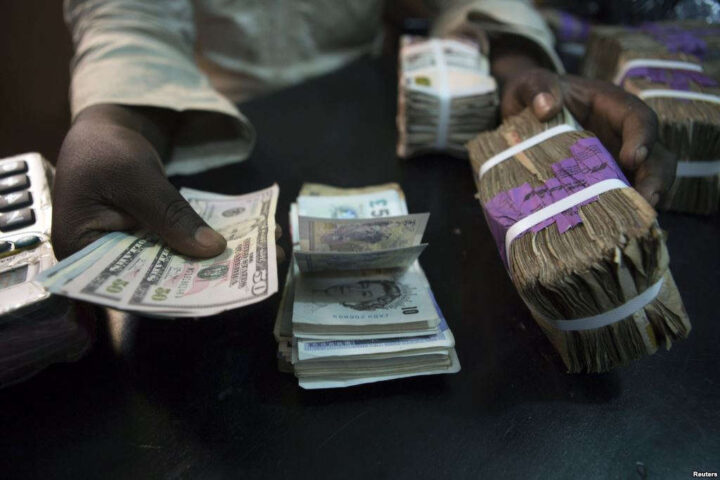A credit rating agency, Agusto & Co, has stated that the Central Bank of Nigeria (CBN) should resume dollar sales to Bureau De Change (BDC) operators to halt forex pressure at the parallel market.
This was stated by the agency’s founder, Bode Agusto during a webinar to commemorate the 30th anniversary of the organisation, titled ‘Nigeria in 2022- ‘Will 2022 Be a Year of Strong Growth Driven by Herd Immunity from COVID-19’.
Recall that the apex had in July 2021 stopped dollar sales to the earlier authorised BDCs.
Godwin Emefiele, CBN governor, had accused BDC operators of becoming agents of money laundering in Nigeria.
But Agusto projected that if the CBN maintains its current stand not to sell dollars directly to BDC operators, the naira exchange rate may depreciate to N620/$1 in the parallel market before the end of 2022.
“We see continued pressure on the parallel market exchange rates. And the only way to reduce pressure in the parallel market is to throw money thereby selling dollars to the BDCs,” he said.
“If there is no additional funding to the BDCs from the CBN, then the parallel market rate will be between N610 and N620 in 2022. It will be fueled by scarcity and the difference between inflation rates of the dollar and the naira.”
On Friday, naira traded N565 to the dollar at the parallel market.
Agusto also predicted that the much-anticipated convergence of rates in the foreign exchange (FX) market might not happen soon as the central bank would be hell-bent on pegging the official exchange rate.
He said a single exchange rate is where the parallel market premium is not more than the official rate by 3.0 percent.
Agusto further urged CBN to cut down lending to the federal government to reduce the spending spree and lower the rising debt burden of the nation.
According to him, if the CBN takes such a position, it will force the government to live within its means.
“First of all, we must take the view that the country’s bigger than any government. Let’s take the view that we must save our country. Because if we don’t save our country, we will have problems. The central bank must be able to take a position that will force the government to live within its means,” he explained.
“This is going to force difficult reforms on governments because what we are doing today is to give governments an easy way out of their spending.
If only if we had a central bank that says that the law says I cannot give you the overdraft of more than 15 percent of previous year’s revenue.”
He advised government should look inward and find ways to reduce its expenses and manage resources better.
